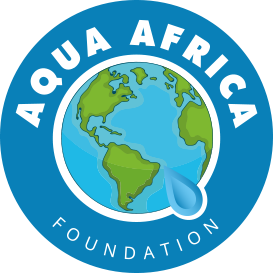Africa is at the center of the global water dilemma and climate change. Africa has the largest number of least developed countries of all continents, the country with the worst health infrastructure, and the country with the highest proportion of rural workers who are highly dependent on weather. It is here that due to global warming, crop yields are expected to decline the most; the sea level rise along the coast of Africa is already higher than the global average. Africa’s herder communities are the largest on earth, accounting for about one-fifth of its population; weather changes define nomadic lifestyles and provide many rewards, but especially in uncertain times, there are also survival risks. Considering that no continent has less water storage capacity, the increasingly unstable precipitation patterns are particularly daunting.
The African continent is still the most marginal emitter of greenhouse gases, but it may have the largest untapped potential for renewable energy: geothermal, wind, and hydropower, especially solar. This issue of Dædalus reflects the depth and breadth of these challenges with its broad interdisciplinary focus. Serious concerns about Africa’s climate and drought — or more precisely, changes in rainfall — are nothing new, but have shaped the social, economic, and political potential of the African continent over the past three centuries. tendency. The storyline about Africa’s unstable geography and natural resource base is at the core of explaining the weakening and strengthening of imperialist ambitions on and for the African continent. They relied on dubious assumptions at the time, and they still do so often today.
Contrary to what is implied by the numerous policy reports that triggered the upcoming “climate conflict” and “water war” in Africa’s drylands, Africa is neither the driest continent on earth nor the continent with the largest number of water-scarce countries. Most models in Central Africa and the Sahel have been weakened by the lack of current and historical data, which need to confirm the doom-language animals related to desertification, shrinking arable land, and inability to cultivate or graze. In addition, concerns about the absolute levels of rainfall or moisture content in African soils, although these are important, may obscure the arguably more important issue of water distribution. The long tradition of building Africa through the perspective of environmental determinism continues to lead many cognitive and policy circles to regard Africa as passive victims, which may inadvertently exacerbate its problems.
Although it is often mentioned how the African population is growing rapidly, the average plot area in vulnerable areas is shrinking, and the disease is spreading, the implicit assumption is that the numbers may change, but the trend (towards greater vulnerability) and basic African The characteristics-its weakness and fragility-are not so. This article briefly explains why this description should be questioned. They made important suggestions for rethinking how Africa responds to soaring temperatures, rising sea levels, and increasing rainfall variability. Contributions here challenge traditional methods of water, energy, and food security (and ultimately political stability), which depend mainly on the total availability of resources in a given social system.
In the view of the (new) Malthusians, supply constraints are a harbinger of dystopian austerity. They worry that biophysics and demographics will constitute a “growth limit” (that is, an upper limit on how much can be produced), and we will ignore this aspect. To the escalating climate change. Also concerned about the specter of chaos and dysfunction caused by scarcity, the discourse of “Africa Rise” argues that technology transfer and the provision of foreign capital provide for African entrepreneurs and African “smart cities” (such as Kigali, Nairobi and Lagos) An opportunity to escape the Malthusian trap by increasing the overall availability of scarce commodities: credit, housing, food, water, etc. Therefore, the resulting policy prescriptions are almost entirely to support (quantifiable) supply. As Jackie King and Kate Brown remind us in this series, this is a disturbing panacea with a bad record across the African continent. Its proponents maintain that Africa’s fundamental problem is that there are too few resources.
With information from: https://news.climate.columbia.edu/2021/09/28/climate-water-in-a-changing-africa-uncertainty-adaptation-the-social-construction-of-fragile-environments/


